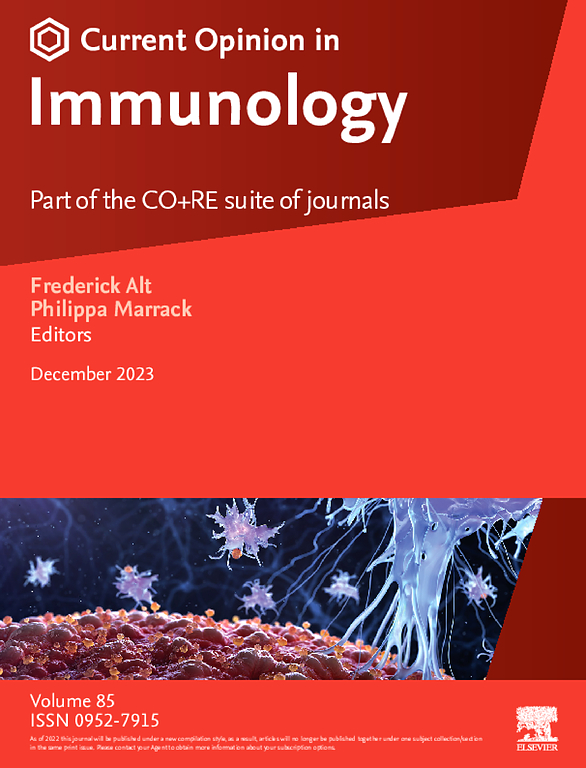Insights and perspectives into the discovery of complement-related biomarkers in cancer
IF 5.8
2区 医学
Q1 IMMUNOLOGY
引用次数: 0
Abstract
The complement system, a central component of innate immunity, is implicated in tumor biology, influencing processes such as tumor progression, immune evasion, and response to therapy. Numerous studies have identified alterations in complement effectors, activation products, regulatory proteins, and receptors in patients with cancer. These findings underscore the potential of complement-derived biomarkers for enhancing cancer diagnosis, prognosis, or treatment guidance across various oncology settings. However, despite substantial progress in discovery and early validation, no complement-related biomarker has yet been integrated into routine oncology practice. Key challenges in the field include the biological complexity of the complement system, variability in testing methods, and the lack of standardized protocols for sample collection, processing, and analysis. Addressing these issues is essential to ensure reliable and reproducible measurements. Moreover, the clinical utility of these biomarkers depends on their validation in real-world settings, as well as their integration with other molecular markers, advanced imaging, radiomics, and artificial intelligence tools. Advancing the development of harmonized assays and reference materials will be critical for the translation of complement biomarkers into clinical use in cancer. This review summarizes current knowledge on complement-related biomarkers in oncology, highlights technical and conceptual challenges, and discusses future directions to fully harness the potential of the complement system in cancer care.
在癌症中发现补体相关生物标志物的见解和观点
补体系统是先天免疫的核心组成部分,与肿瘤生物学有关,影响肿瘤进展、免疫逃避和对治疗的反应等过程。许多研究已经确定了癌症患者体内补体效应物、激活产物、调节蛋白和受体的改变。这些发现强调了补体衍生的生物标志物在各种肿瘤学环境中增强癌症诊断、预后或治疗指导的潜力。然而,尽管在发现和早期验证方面取得了重大进展,但尚未有补体相关的生物标志物被纳入常规肿瘤学实践。该领域的主要挑战包括补体系统的生物学复杂性、测试方法的可变性以及缺乏样本收集、处理和分析的标准化协议。解决这些问题对于确保测量的可靠性和可重复性至关重要。此外,这些生物标记物的临床应用取决于它们在现实环境中的有效性,以及它们与其他分子标记物、先进成像、放射组学和人工智能工具的整合。推进统一的检测方法和参考物质的发展对于补体生物标志物在癌症中的临床应用至关重要。本文总结了目前肿瘤学中补体相关生物标志物的知识,强调了技术和概念上的挑战,并讨论了充分利用补体系统在癌症治疗中的潜力的未来方向。
本文章由计算机程序翻译,如有差异,请以英文原文为准。
求助全文
约1分钟内获得全文
求助全文
来源期刊
CiteScore
13.30
自引率
1.40%
发文量
94
审稿时长
67 days
期刊介绍:
Current Opinion in Immunology aims to stimulate scientifically grounded, interdisciplinary, multi-scale debate and exchange of ideas. It contains polished, concise and timely reviews and opinions, with particular emphasis on those articles published in the past two years. In addition to describing recent trends, the authors are encouraged to give their subjective opinion of the topics discussed.
In Current Opinion in Immunology we help the reader by providing in a systematic manner: 1. The views of experts on current advances in their field in a clear and readable form. 2. Evaluations of the most interesting papers, annotated by experts, from the great wealth of original publications.
Current Opinion in Immunology will serve as an invaluable source of information for researchers, lecturers, teachers, professionals, policy makers and students.
Current Opinion in Immunology builds on Elsevier''s reputation for excellence in scientific publishing and long-standing commitment to communicating reproducible biomedical research targeted at improving human health. It is a companion to the new Gold Open Access journal Current Research in Immunology and is part of the Current Opinion and Research(CO+RE) suite of journals. All CO+RE journals leverage the Current Opinion legacy-of editorial excellence, high-impact, and global reach-to ensure they are a widely read resource that is integral to scientists'' workflow.

 求助内容:
求助内容: 应助结果提醒方式:
应助结果提醒方式:


